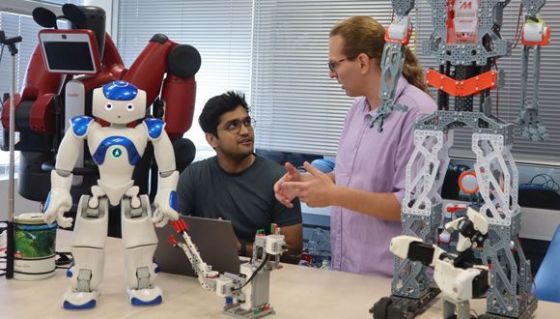
TAU Launches Cutting-Edge Center for Innovation Labs
Center to cooperate with industry veterans to develop innovative solutions to real-world issues.
Tel Aviv University is launching the Center for Innovation Laboratories. The center will join forces with industry along the goal of advancing groundbreaking research with potential applicability within a period of 3-7 years from the moment the research begins. At this stage, the center comprises six laboratories, with additional laboratories under construction. The goal of the labs is to adapt research to the needs of society, industry and public institutions.
Research in Consultation with Industry Experts
For the first time in Israeli academia, the choice of research topics will be made in consultation with industry and public bodies (e.g. hospitals) that will present the needs on the ground to the heads of the laboratories, who will try to provide a comprehensive scientific and innovative solution within a few years’ time. For example, if the industry describes a demand for the development of unique photographic technology for medical diagnosis purposes, or a need to monitor offensive content in information transmitted online, the researchers will try to provide an appropriate solution based on unique artificial intelligence methods.
The model of this applied research is different from traditional basic research, which focuses on the interests of the researcher, without necessarily thinking about immediate needs. At the same time, however, while the center will focus on the applicable aspect of the research, this will not detract from the outstanding basic research that is taking place at the university. This fundamental research has been and will remain the bulk of the university’s scientific research. Furthermore, faculty members at the new center will continue to be an integral part of their “mother” faculties.
A Multidisciplinary Endeavor
In its multi-year vision, Tel Aviv University has defined three main elements: strengthening its international component, encouraging multidisciplinarity, and bolstering its relationships with knowledge-intensive industry and society. In this context, the new center will promote the university’s vision and act as a channel through which these three tracks will flow.
Unlike basic research, which traditionally focuses on one discipline, research at the new center will bring together experts from a wide range of disciplines. The Automated Justice Laboratory, for instance, will deal with areas in which the market and academia rarely engage, such as systems for improving democracy – handling fake news and the relationship between the government and the citizens. This lab will house people from various disciplines, including legal scholars, psychologists, software engineers, media specialists, political scientists, smart cities researchers and designers. A multidisciplinary approach is required and the research will have potential applicability within a period of 3-7 years.
Unconventional Approach to IP Rights
The center’s financial approach is based on the industry taking on a significant part of the funding of the research, in a format that involves “club membership” that confers product development rights.
The center also applies unconventional thinking when it comes to property rights. According to the new model, all players, including the university, the researchers, and industry partners, will receive the rights to use the research products. These rights will be under a non-exclusive and non-transferable license. This unique model will accelerate the application of academic innovation to the sphere of action and will overcome one of the most significant obstacles in commercialization of worth academic innovations.
These six labs will be kicking off this exciting journey:
- Genetic Reproduction: Biology, Medicine, Engineering (Prof. Noam Shomron)
- The Human Robot: Animal, Man, Machine (Dr. Goren Gordon)
- Urban Science: Sustainability, Environment, Food (Prof. Tali Hatuka)
- Computational Economics: Information, Intelligence and Economics (Prof. Michal Feldman)
- Mechanized Justice: Law, Information, Intelligence (Prof. Omri Yadlin)
- Act-Play-Game (Dr. Sharon Aronson-Lehavi)
“This unique center redefines the interface between academia and industry,” says Director of the Center, Prof. David Mendlovic of the Fleischman Faculty of Engineering
“The academic freedom to create and innovate on the one hand, and the desire for research that has practical applicability on the other, has led to a center that brings together innovation labs dealing with a variety of topics and actors such as industry, hospitals and government agencies. Our unique commercial and funding model and our selection of unconventional innovation labs is leading to the close engagement of the center’s partners that will relay the academic innovation to those who will implement it. I am proud to be part of a university that is responsible for such an initiative.”
Featured image: Dr. Goren Gordon (right) with a student in the Human Robot: Animal, Man, Machine Lab.
Related posts







One in Three Arab Israelis Prefer External Governance for Gaza Post-War


